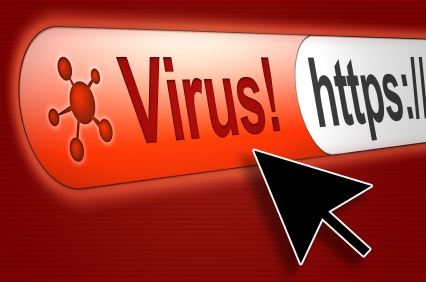 Computer viruses can wreak havoc on your own personal computer but when those bugs compromise the way you conduct your business with your work computers and laptops it can cause even more problems. Today I’m going to tell you what three types of viruses can make the biggest negative impact on your business and spawn plenty of issues from infection and what you can do to fix the problems.
Computer viruses can wreak havoc on your own personal computer but when those bugs compromise the way you conduct your business with your work computers and laptops it can cause even more problems. Today I’m going to tell you what three types of viruses can make the biggest negative impact on your business and spawn plenty of issues from infection and what you can do to fix the problems.
File Infector Virus
This type of virus is the most common. The bug settles within a specific file on your computer and begins to do damage. It can overwrite the file where it is located, replace parts of the file (making it harder to detect), or it may be executed in place of the intended program or file. For example if the virus nests within the Excel program and you try to launch it, the virus will take over and won’t allow access to the program. This can be particularly damaging when a virus overwrites client information, payroll information, or personal documents like pictures. There are many faces of this type of virus; some codes will open spam instead of the desired file or even prompt you to download a new “version”—which can be a more malicious virus.
Solution: The best way to prevent and repair virus attacks on your devices is to install anti-virus protection. There are thousands of malware codes distributed every year, so be sure to install a package that can scan your device frequently, detect potentially harmful attacks, and eliminate viruses that have slipped through the cracks.
Remember to update your software often. Many providers of operating systems are aware of harmful malware and create “patches” to fix the vulnerabilities within their system.
PoS Dexter
This specific virus (discovered Dec. 2012), known as Dexter, can be very devastating for any business using point-of-sale systems (POS). It is customized malware that has infected hundreds of systems in 40 countries around the world. Its purpose: to steal data from bank cards used for payment.
How Dexter infected systems is still unknown, but we do know how it works. Once a computer is infected, Dexter transfers all data (name, account number, expiration date, etc.) to a remote server. The info is then used to replicate cards and can result in your clients getting their money stolen.
Solution: The best way to combat this virus from running rampant is to use systems with integrated point-to-point encryption. This protects cardholder data from the time it is swiped to the time the payment process is complete. These systems trick the attacker; changing the 16-digit number on the card to random digits that can’t be used to create a card. So if the system is breached, the hacker essentially receives useless data.
Operating PoS systems on isolated networks can prevent an intrusion altogether too. These networks run separately from existing online networks and can prevent attackers from entering into the system.
Devices on network
Now more than ever, we are using our smartphones in all aspects of our lives. It is important to note that these devices can be the source of the virus that affects your business. Typically, a virus can spread in three ways: via Bluetooth connection, USB ports, and wireless networks.
Some malware-infected smartphones are designed to spread exclusively through Bluetooth networks. The bug automatically searches for other devices connected through Bluetooth and attempt to infect them.
A worm known as Hamweq.A took a different approach. Designed to spread when a phone was connected to a computer through a USB port, as soon as an infected phone was plugged in to either charge or transfer files, the virus would attack the computer.
Solution: Make sure your employees know the dangers of viruses and how they can spread. A seemingly harmless act like charging your phone on a work computer can potentially render business devices inoperable. Also, make sure that no one downloads any suspicious programs or activates any devious email attachments, as those can also be the source of viruses.
Dealing with a virus can cause stress and amount to hundreds, if not, thousands of dollars in repair costs with your business. It also decreases productivity when machines are infected as repair usually requires the system to be taken offline. Worst of all, if pertinent information was to be leaked the reputation of your business could be damaged the most. Just by making simple changes to your business’ devices and your employee’s habits can help strengthen security and prevent any unfortunate contaminations from occurring.
Kaito Mori is a father of three rambunctious children that are constantly testing his ability to keep their home computer safe and secure among the plethora of uses it is subjected to each day. When not being the raddest dad alive, Kaito also works with Trend Micro in an effort to keep other family’s online adventures as safe as his.